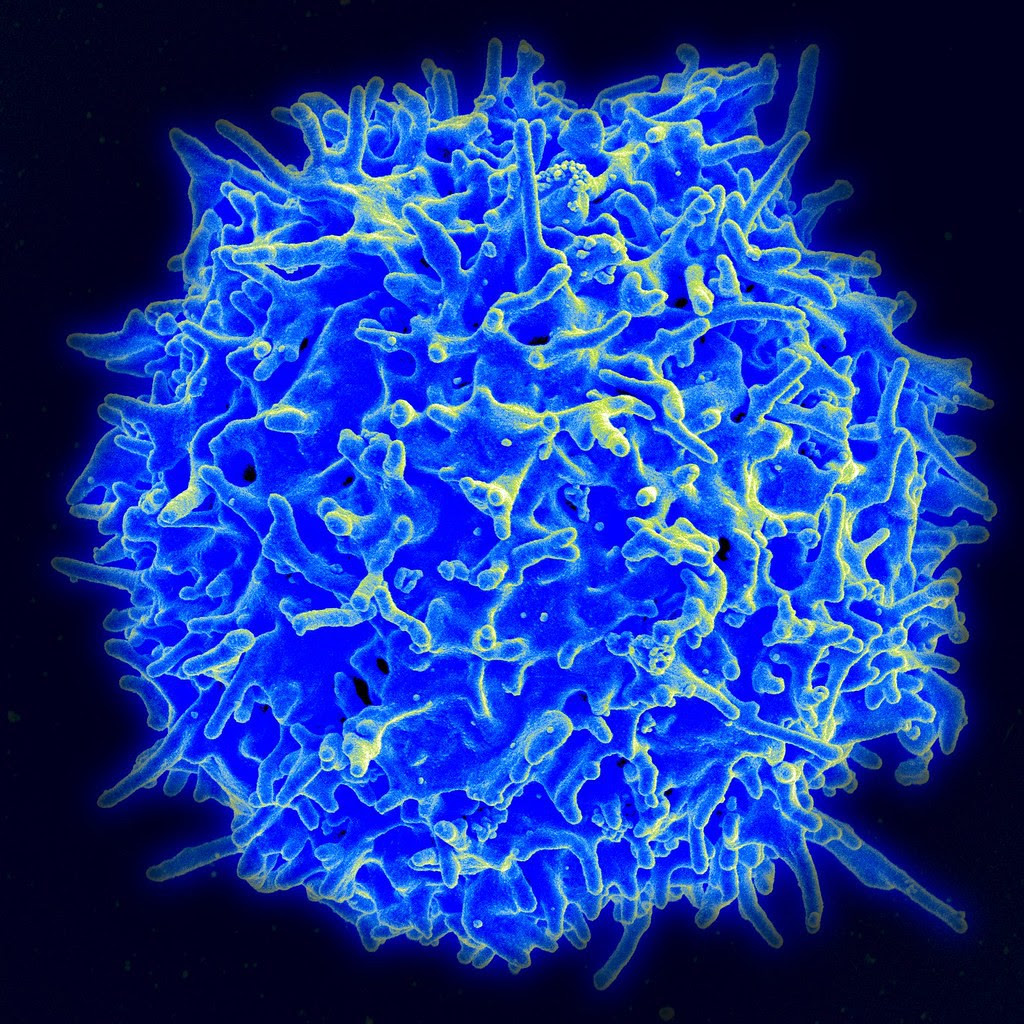Cancer therapy shows surprising promise against autoimmune disorders

Depiction of a cancer cell
Sometimes science experiments go spectacularly well. That's what happened in a very small clinical trial of a novel cell therapy that turns ordinary immune cells into specialized hunters of rogue cells. The patients who got the new therapy saw their severe symptoms, such as kidney and other organ dysfunction, largely disappear.
Betty Diamond, an immunologist and rheumatologist at the Feinstein Institutes for Medical Research, and who cares for lupus patients, recognized that the results "are phenomenal" but cautions that, of course, the therapy needs larger studies to make sure that it's safe and provides long-lasting benefits. But there is reason for hope given the unexpected results.
The treatment is called chimeric antigen receptor T cell therapy, or CAR-T. T cells, the sentries of the immune system, are harvested from the patient's blood and genetically modified to seek and destroy other cells that cause disease. The T Cells are then infused back into the patient. CAR-T was first developed over a decade ago as a treatment for certain leukemias and lymphomas. In those cases the modified hunters target B cells, which are another type of immune cell, which have turned cancerous.
In lupus, B cells go rogue in a different way, spewing antibodies that attack the person's own tissue. Lupus can cause kidney failure, heart and lung problems, and joint pain among other complications. It is notoriously difficult to treat.
Last year, Georg Schett, an immunologist and physician at the University of Erlangen-Nürnberg and his team reported the case of a young woman who received CAR-T and had her lupus go into remission with no serious side effects. That got them thinking that they should try it on more lupus patients. Their approach is similar to CAR-T for cancer. Before CAR-T patients get chemotherapy to clear out their immune cells to give the transplanted cells a fighting chance.
Five patients got the chemotherapy followed by CAR-T, and five patients went into remission, along with a sixth who got the treatment later. Small study or no, 100% is pretty exciting. Schett says that now, "they really have a different life". One is horseback riding, one is working as a DJ, and a third was able to return to school. Schett, appropriately cautious, doesn't yet call them "cured". It will take time to make sure there is no relapse, for example.
But he's fascinated by what he saw in his patients' blood: B cells were wiped out by the chemo, as expected, but as new B cells were born the lupus remained at bay. He called it a "reset" of some kind. All of which makes for a landmark study and a bright ray of hope. Future plans are to apply CAR-T to other autoimmune disorders. The durability of the treatment is key because it's too risky a treatment for repeated use. Schett says, "If you can stay 3 years or longer in drug-free remission it's a pretty great story."







No comments:
Post a Comment
Note: Only a member of this blog may post a comment.